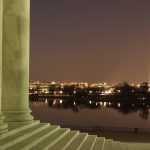By Erika Lietzan, Kevin Madigan, & Mark Schultz
 Earlier this month, a bipartisan group of Senators introduced the Creating and Restoring Equal Access to Equivalent Samples Act (or CREATES Act). The proposed bill is aimed at deterring what the bill’s author, Sen. Read more
Earlier this month, a bipartisan group of Senators introduced the Creating and Restoring Equal Access to Equivalent Samples Act (or CREATES Act). The proposed bill is aimed at deterring what the bill’s author, Sen. Read more
 In 2013, CPIP published a policy brief by Professor Bruce Boyden exposing the DMCA notice and takedown system as outdated and in need of reform.
In 2013, CPIP published a policy brief by Professor Bruce Boyden exposing the DMCA notice and takedown system as outdated and in need of reform.  How did the world’s wealthiest nations grow rich? The answer, according to Professor Stephen Haber of Stanford University, is that “they had well-developed systems of private property.” In
How did the world’s wealthiest nations grow rich? The answer, according to Professor Stephen Haber of Stanford University, is that “they had well-developed systems of private property.” In  This past April, we
This past April, we 
 With the Copyright Office undertaking a
With the Copyright Office undertaking a  Mason Law’s Arts & Entertainment Advocacy Clinic filed comments today with the U.S. Copyright Office detailing the frustrations and futilities experienced by everyday artists as they struggle with the DMCA system to protect their copyrights online.
Mason Law’s Arts & Entertainment Advocacy Clinic filed comments today with the U.S. Copyright Office detailing the frustrations and futilities experienced by everyday artists as they struggle with the DMCA system to protect their copyrights online.